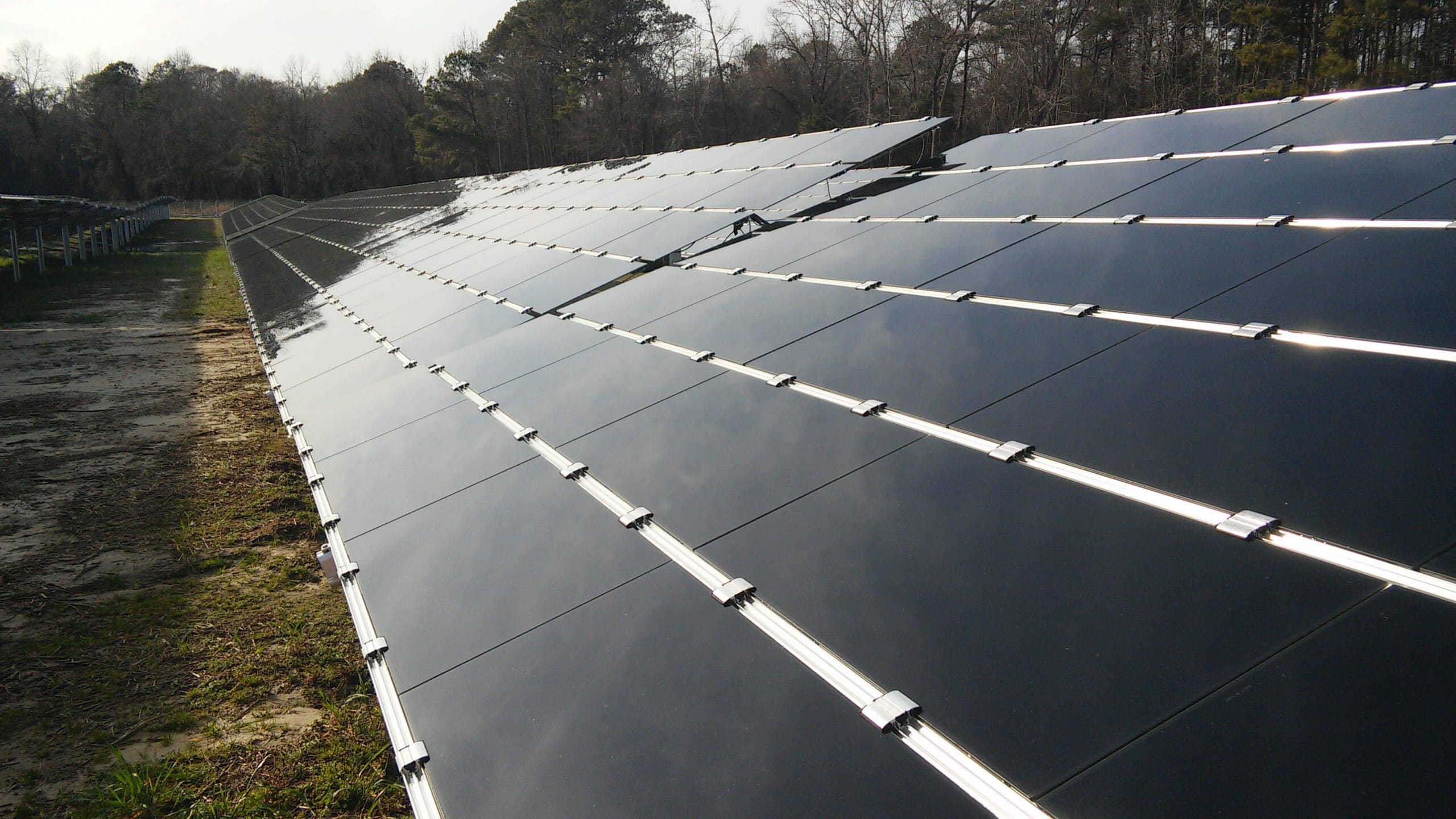Out-of-state contractors building two of three Duke Energy solar projects in N.C.
Out-of-state contractors building two of three Duke Energy solar projects in N.C.
Duke is purchasing three solar farms outright and will buy the power from five more under long-term contracts.
Duke Energy has announced the principal contractors for the three projects it intends to buy as part of its $500 million investment in N.C. solar power.
Only one of the engineering, procurement and construction contractors is a North Carolina company. That is Strata Solar of Chapel Hill, the state’s leading solar company. It will be the principal contractor for the 65-megawatt Warsaw Farm in Duplin County.
Strata designed and developed the project, which it is selling to Duke. It will be the largest solar farm east of the Mississippi. The project will use solar panels built by First Solar of Arizona.
Duke Energy deal includes largest solar farm in eastern U.S.
Thin-film technology
First Solar will be both the EPC contractor and the panel vendor for the 40-megawatt Elm City Solar Project in Wilson County. That project was developed by Virginia-based HelioSage and is being sold to Duke.
For both projects, First Solar will use its thin-film solar panels.
This is a different technology than standard crystal silicon solar cells. Thin-film cells are less expensive to produce.
They are generally less efficient than traditional cells, although companies such as First Solar are closing that gap. And First Solar claims its thin-film product generates more power at temperatures above 77 degrees than silicon.
Still, thin-film panels accounted for only about 9 percent of the solar installations worldwide in 2013.
Power purchase deals
Germany-based SMA Solar Technology will provide the inverters for both of those projects.
The third project Duke is buying outright, the 23-megawatt Fayetteville Solar Facility in Bladen County, will be built by Phoenix Solar of Arizona. The solar panels will be provided by China-based Yingli Solar. The project was developed by Pennsylvania-based Tangent Energy Solutions.
The three projects represent about 128 megawatts of the 278 megawatts of capacity Duke is buying or purchasing the power from as a result of competitive bids it requested in March.
“In addition to helping our local economies, the projects will benefit customers by having experienced solar companies involved,” says Rob Caldwell, senior vice president, Distributed Energy Resources.
Spokesman Randy Wheeless says that the contractors had already been connected with the projects when the developers offered them to Duke in the bidding. “It made sense to continue with the companies who were already familiar with the project.”
Duke is signing power-purchase agreements with the developers of five additional projects that total 150 megawatts of capacity.
Independent negotiations
Four of the five developers in that group are North Carolina solar companies. The power-purchase contracts are for 15 years each.
Duke will buy the power and renewable-energy credits produced by the projects during the term of the contracts.
Based on the $500 million total value of the purchases and contracts, Duke is getting the capacity for about $1.80 per watt. Prices for large-scale projects have been coming in under $2 per watt in North Carolina for more than a year, at least with the top developers.
Based on that average price, the purchased projects would be worth about $230 million. But each of the projects were independently negotiated.
And the structure for buying a project is different than the structure for a power-purchase agreement. For instance, Duke would control the renewable-energy credits for any project it owns. In a power-purchase agreement, it must pay for the credits separately than for power.
Advantages to both
Solar credits are relatively low-cost right now, but they add to the expense of the 15-year deals. Solar developers look to pay the costs of the project and make their profit for their investors off the 15-year contract, but the useful life of a solar farm is thought to be at least 25 years.
Duke declines to say whether purchasing the projects or buying the power ends up being less expensive in raw dollars. Wheeless says there are advantages to both.
He says Duke believes it provides the best value to its customers by mixing the projects between Duke-owned solar farms and power-purchase agreements.
Eastern dominance
All but one of the projects will belong to or contract with Duke Energy Progress, which provides power in the eastern part of North Carolina. Solar projects are more common in eastern part of the state than in Duke Energy Carolinas' service area in the western part.
Both Duke Energy Progress and Duke Energy Carolinas are utilities of Charlotte-based Duke Energy Corp. (NYSE:DUK).
The three projects Duke will own are expected to create 750 construction jobs as they are built next year.
All the projects, including those with power-purchase agreements, are expected to be operating by the end of 2015.
